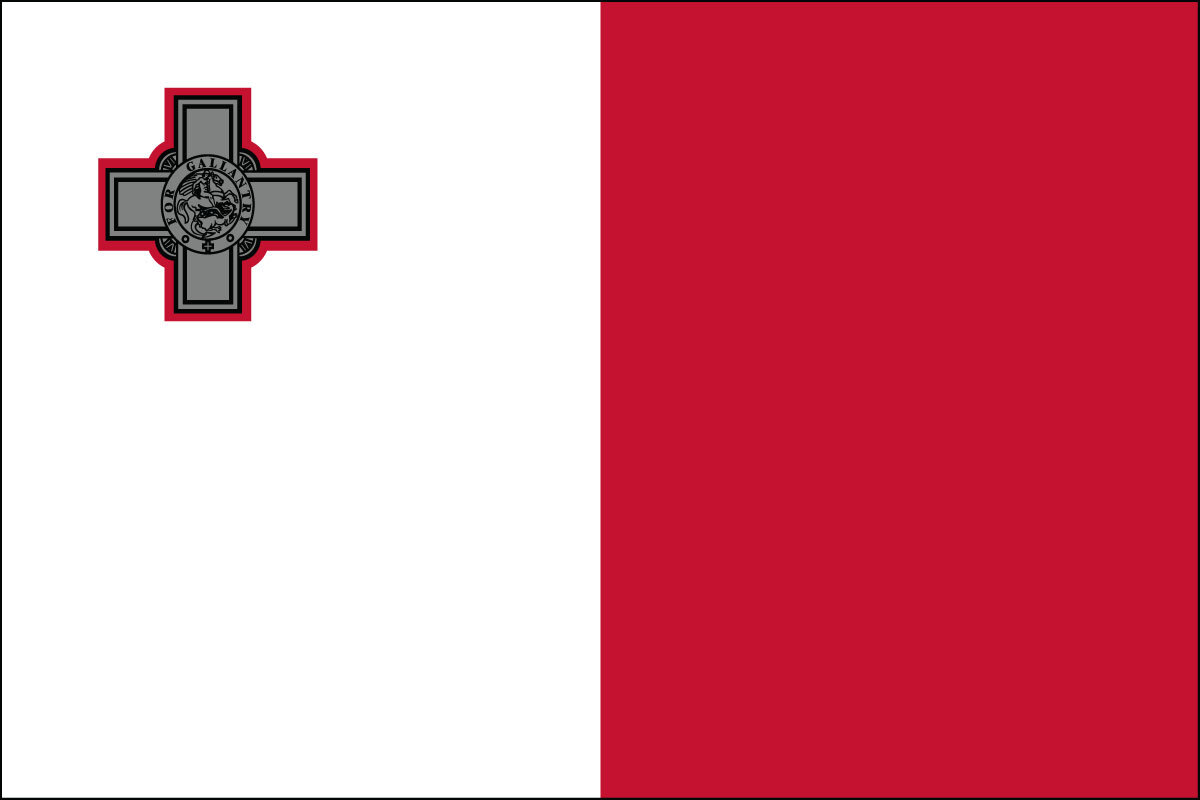Want to operate a Forex business in Malta? Here's what you need to know:
- Regulatory Body: The Malta Financial Services Authority (MFSA) oversees forex licensing with strict EU-aligned standards.
-
Minimum Capital:
- Market Maker: $800,000 (€730,000)
- STP Broker: $137,000 (€125,000)
-
Key Requirements:
- Notarized personal and business documents
- A detailed business plan with financial projections and AML procedures
- A physical office in Malta and qualified staff
- Application Timeline: 5-12 months, including document reviews and regulatory interviews.
- License Types: Three classes tailored to different forex activities, from basic services to full-service trading. Class 4 licenses are applicable only to collective investment schemes (CIS) and asset managers.
Benefits:
- Access to EU markets
- Favorable tax system with 70+ double-tax treaties
Challenges:
- High capital requirements
- Ongoing compliance and operational costs
Malta offers a structured pathway for forex operators but demands financial strength and regulatory expertise.
Malta Forex License Requirements
Getting a Malta Forex License involves meeting strict financial, operational, and regulatory standards set by the MFSA. These rules ensure compliance with both local and EU regulations while protecting the integrity of Malta's financial sector.
Required Documents and Qualifications
The minimum capital needed depends on the type of forex operation:
| Operation Type | Minimum Capital Requirement |
|---|---|
| Market Maker | $800,000 (€730,000) |
| STP Broker | $137,000 (€125,000) |
You'll need to provide the following:
-
Personal Documentation
- Copies of valid passports
- Utility bills from the past three months
- Bank reference letters for directors and shareholders
- Educational degree certificates
- Detailed CVs for directors and shareholders
-
Business Documentation
- Completed MFSA application forms
- A business plan, including market analysis
- Financial projections
- Anti-Money Laundering (AML) procedures
- Statutory declarations
All documents must be notarized and in English.
In addition to submitting these, companies must meet EU's rigorous operational and financial criteria.
EU Regulatory Standards
-
Operational Structure
Firms are required to have a physical office in Malta, hire qualified staff, and appoint experienced directors. These measures reinforce Malta’s position as a key forex hub. -
Financial Oversight
Regular financial reporting is essential, focusing on:- Meeting minimum capital requirements
- Submitting periodic financial statements
- Proving ongoing financial stability
At least one shareholder must already have MFSA-approved financial services regulation. The entire application process usually takes 5 to 12 months depending on complexity.
License Application Steps
To set up your Maltese company, start by confirming the company name, securing a registered office, appointing qualified directors, and establishing the corporate structure.
Next, create a detailed three-year business plan. This should include financial projections, risk management strategies, technical infrastructure, staffing plans, and marketing approaches. Once your company is established and the business plan is ready, you can move on to the MFSA's application review process.
Application Review Process
The MFSA reviews applications in several stages:
- Preparation and verification of initial documents
- Preliminary review by the MFSA
- In-depth examination of all submitted documentation
- Final evaluation, which may include interviews
For specifics on required documents and qualifications, check the earlier section on Malta Forex License Requirements. Be sure to include proof of capital compliance as outlined.
As part of the review, applicants must participate in regulatory interviews where you'll present your strategy and address compliance and risk management plans. The MFSA may request additional details or documents at any point. Staying organized and responding promptly can help the process move forward without unnecessary delays.
Malta Forex License Categories
Malta's Investment Services Act provides different license types tailored to various forex activities, ensuring compliance with EU regulations and operational needs.
The Malta Financial Services Authority (MFSA) divides investment firms into three classes based on their scope of operations:
| License Class | Key Features | Permitted Activities |
|---|---|---|
| Class 1 | Comprehensive authorization | Portfolio Management and/or Investment Advice. |
| Class 2 | Standard operations | Execution of client orders and dealing on behalf of clients. |
| Class 3 | Basic services | Dealing on own account, underwriting. |
License Type Overview
Each license type is designed to support specific business models:
-
Reception and Transmission Services
Focuses on receiving and transmitting client orders, requiring lower capital for intermediary roles. -
Execution and Portfolio Management
Covers direct trade execution and portfolio management, including handling client assets. -
Full-Service Trading Operations
Includes dealing on own account, underwriting, and placing financial instruments.
Factors to Consider When Choosing a License
When selecting a license, consider these key factors:
- Scope of operations
- Capital availability
- Risk management strategies
- Target market
- Compliance capabilities
Regulatory requirements become more stringent as the complexity of activities increases. The MFSA adjusts its supervision based on a firm's size, operational complexity, and services offered.
Choosing the right license ensures your firm's activities align with regulatory standards and available resources. Next, we'll explore the pros and cons of Malta Forex Licensing to help you determine the best fit for your business.
sbb-itb-7fe6294
Pros and Cons of Malta Forex Licensing
Malta offers a strong financial framework for forex operators, blending opportunities with challenges that demand thoughtful planning.
Benefits
| Category | Key Advantages |
|---|---|
| Regulatory Framework | • EU-compliant oversight by MFSA • Recognized regulatory structure • Accessible regulatory body |
| Tax Benefits | • Business-friendly corporate tax system • Nearly 70 double tax treaties • Efficient tax setup for global operations |
| Market Access | • Entry to European financial markets • Trusted by global financial institutions |
| Operational Flexibility | • Various license categories • Scalable business models • Supports different trading approaches |
Limitations
-
Capital Requirements
- High initial capital investment can strain resources.
- Smaller businesses may face entry barriers.
-
Regulatory Compliance
- Requires ongoing monitoring and reporting.
- Regular audits and assessments are mandatory.
- Dedicated compliance staff and continuous training are essential.
-
Operational Costs
- Includes annual regulatory fees.
- Investment in compliance management systems.
- Reliance on professional service providers.
-
Qualification Requirements
- At least one shareholder must have prior regulatory experience in financial services to meet MFSA standards.
While Malta currently offers a favorable EU-aligned forex framework, applicants should monitor evolving EU-wide reforms, such as ESMA leverage restrictions and potential crypto-forex integration under MiCA.
A Malta Forex License is best suited for businesses with the financial strength and operational scale to handle its setup and compliance demands.
License Renewal and Regulations
Renewal Steps
Renewing your license involves updating key documents and undergoing a thorough review process. These steps ensure compliance with regulatory standards remains intact.
-
Compliance Review
Submit updated audit reports and risk management documentation, and confirm that your capital adequacy remains sufficient. -
Documentation Updates
Provide an updated business plan that reflects any operational changes. Include proof of professional indemnity insurance and certifications for current personnel. -
Regulatory Assessment
The assessment covers trading activities, client records, and anti-money laundering (AML) procedures.
Annual Fees and Requirements
To maintain a Malta Forex License, firms are required to pay annual fees. These fees cover audits, professional indemnity insurance, and capital maintenance. Firms must also meet these ongoing obligations:
- Submit regular financial reports and ensure staff participate in training programs.
- Conduct periodic reviews of risk management practices.
-
Protect clients by implementing measures such as:
- Keeping client funds in segregated accounts.
- Ensuring clear and transparent communication.
Additionally, firms must maintain detailed records of trading activities and client interactions for inspections by the Malta Financial Services Authority (MFSA).
Summary
Malta stands out as a strong financial hub, making it a popular choice for obtaining a Forex license. The Malta Financial Services Authority (MFSA) offers a regulatory framework that supports reliable Forex operations.
Here are some key benefits of obtaining a Forex license in Malta:
- EU Recognition: Licenses issued by the MFSA are acknowledged across the European Union.
- Tax Advantages: Operators can benefit from Malta's extensive network of double tax treaties, which includes nearly 70 countries.
- Regulatory Support: The MFSA is known for its approachable attitude and openness to new business ideas.
These benefits highlight the structured yet supportive nature of Malta's licensing process.
Once licensed, operators need to maintain compliance by keeping documentation and reporting up-to-date with MFSA regulations. This ongoing adherence reinforces Malta's reputation as a well-regulated financial center.
Malta's combination of clear rules and a business-friendly atmosphere continues to attract serious Forex operators looking for a trustworthy base for their activities.


















